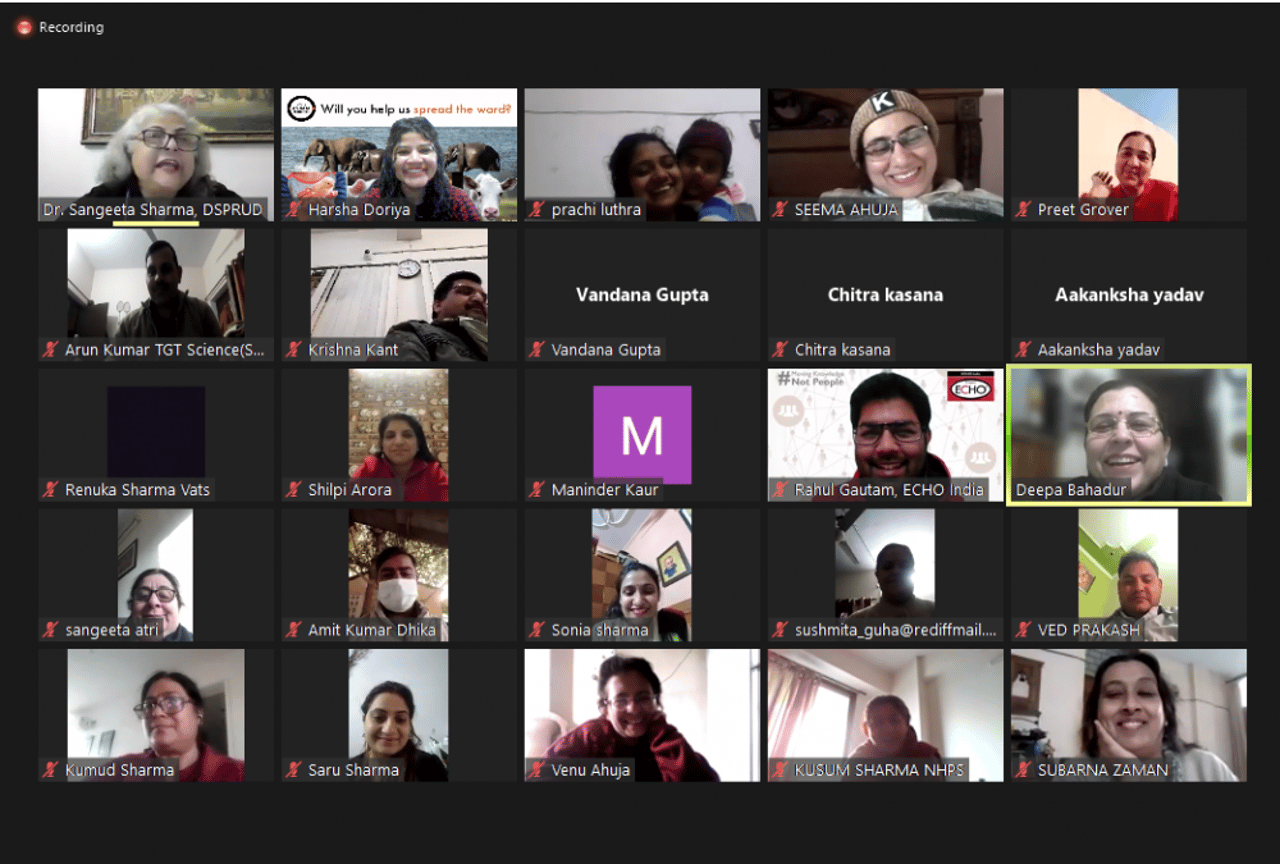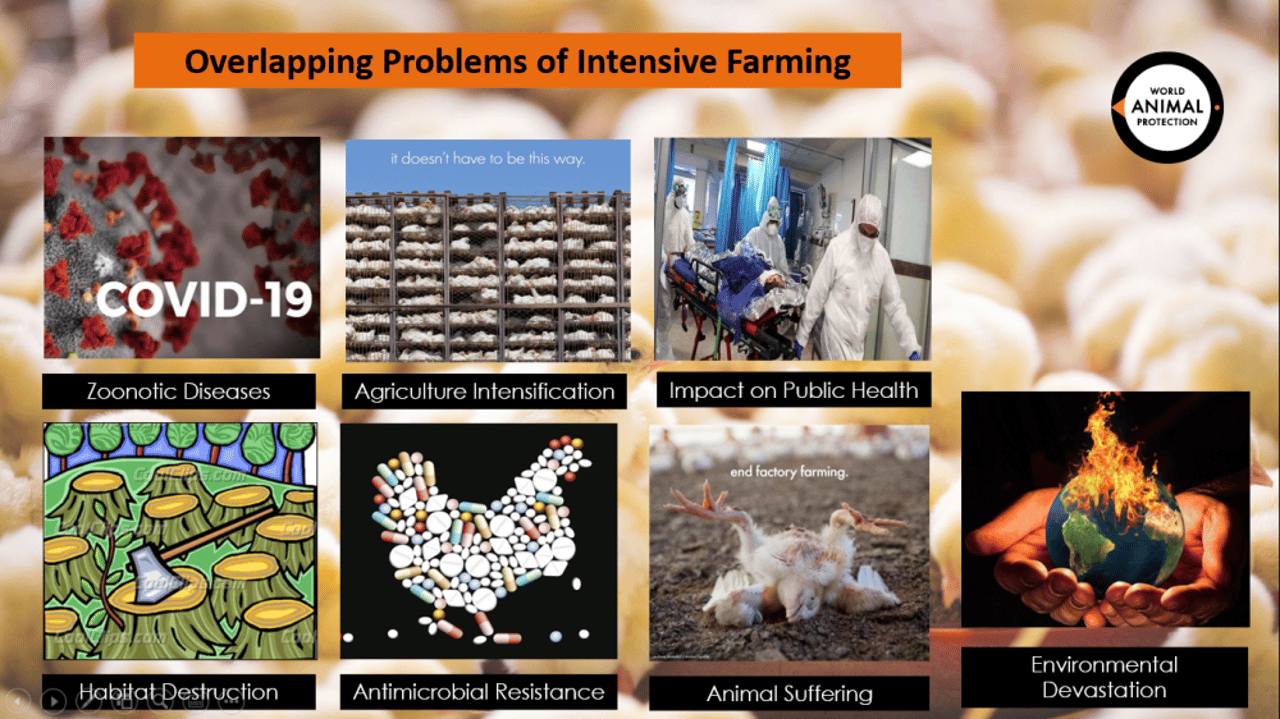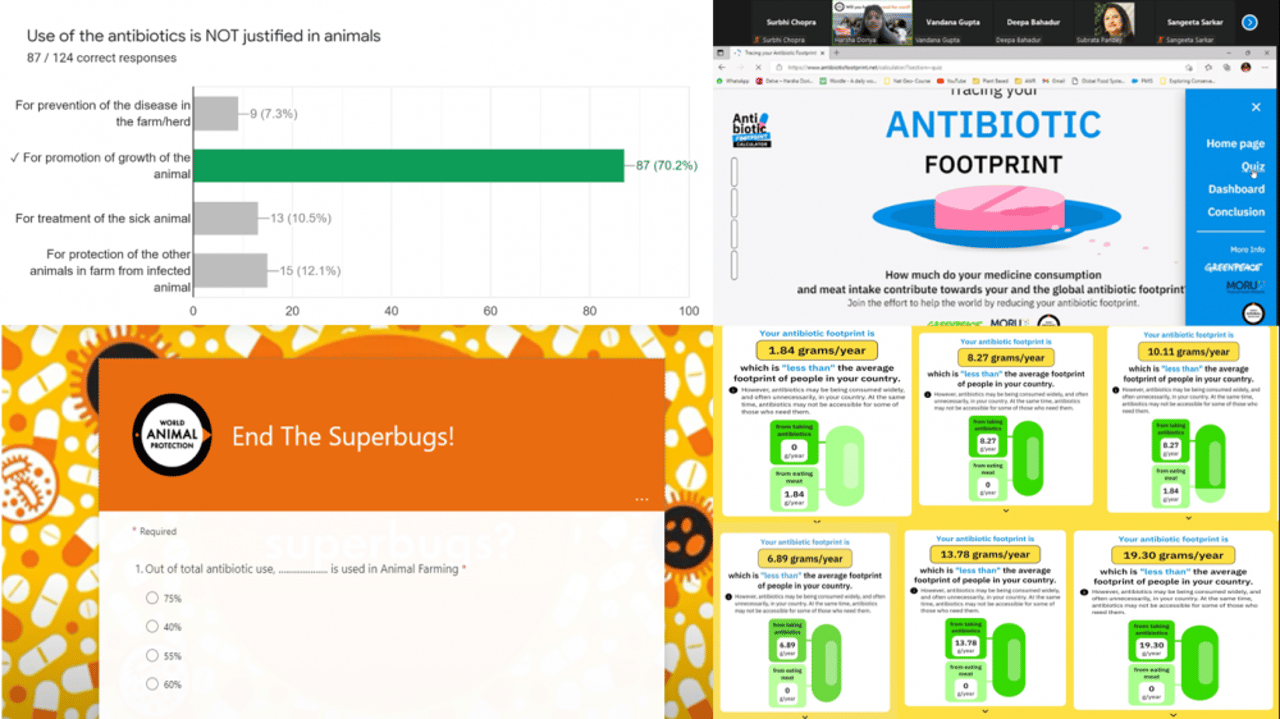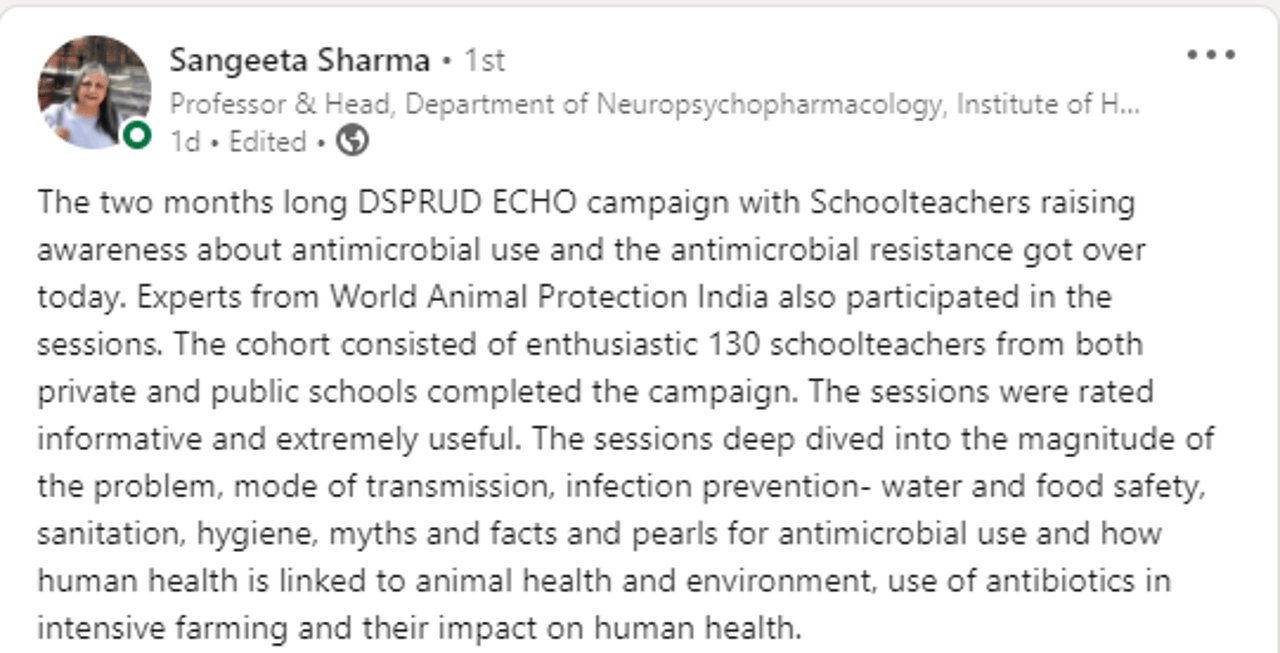
We conducted two sessions on “Anti-microbial resistance (AMR) and its linkages with Intensive Farming” with the Delhi Society for Promotion of rational use of drugs (DSPRUD) and ECHO India. The sessions were part of the Delhi AMR government team's ongoing “Awareness Programme on Antimicrobial Use”.
Our Sessions on Anti-microbial resistance
During Covid-19, we have been guided to avoid others /maintain social distancing and maintain better hygiene while the food we consume is coming from immunologically compromised animals that are confined to cramped, unhygienic conditions.
We conducted two sessions on “Anti-microbial resistance (AMR) and its linkages with Intensive Farming” with the Delhi Society for Promotion of rational use of drugs (DSPRUD) and ECHO India. The sessions were part of the Delhi AMR government team's ongoing “Awareness Programme on Antimicrobial Use”. Out of six sessions on the module, we were able to hold two sessions on animal welfare. More than 100 teachers from the government and Delhi private schools attended.
Sessions focused on:
- links between intensive farming, increasing AMR and how it impacts humans.
- animal-related AMR global case studies, a ban on colistin in India and recommendations from the World Health Organisation.
- how intensive farming has led to increased antibiotic use in farming.
- one of the teachers shared a case study on how growth promoters impact animals and humans. He said: “Living standards for farm animals is poor due to increased stocking density and leads to their deteriorating health. Hence, antibiotic use has increased over the years.”
Activities:
- Responses on the antibiotic footprint calculator from teachers
- Through the quiz, we received more than 90 responses from teachers. We discovered that 64% of respondents knew that: “75% of total antibiotics are used in animal farming,” and 73% of respondents said, “Antibiotic use should be restricted to the treatment of animals.”
- Interactive polls found that people are aware about growth promoters being used in animal farming and find it non-justified. Interactive videos and quizzes were used to keep the audience engaged.
- Engaging videos on highlighting what are superbugs.
Dr. Sangeeta Sharma, President, DSPRUD says “People are not aware about how antibiotics are used in non-human sector like farm animals, fisheries etc. and how it is going into the environment impacting humans only. The session provided a good knowledge to the teachers on the same, which will be further shared to the students for wider dissemination. The teachers have already started sessions with their students, which is how our message is reaching hundreds of students in Delhi.
Teachers signed our ongoing petition, to demand responsible use of antibiotics in farming. You can sign it too and share it on Facebook, Twitter and LinkedIn.
Factory farming doses stressed animals with antibiotics to make them grow fast for profit or prevent them getting sick, leading to superbugs that can enter our food chain or environment.




